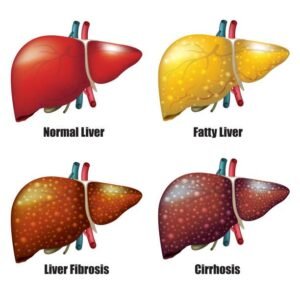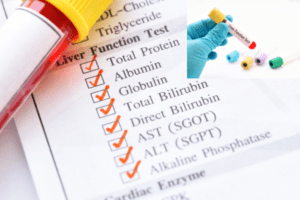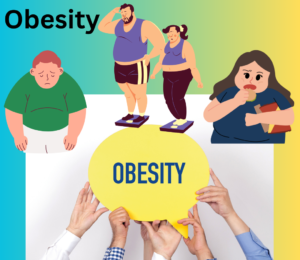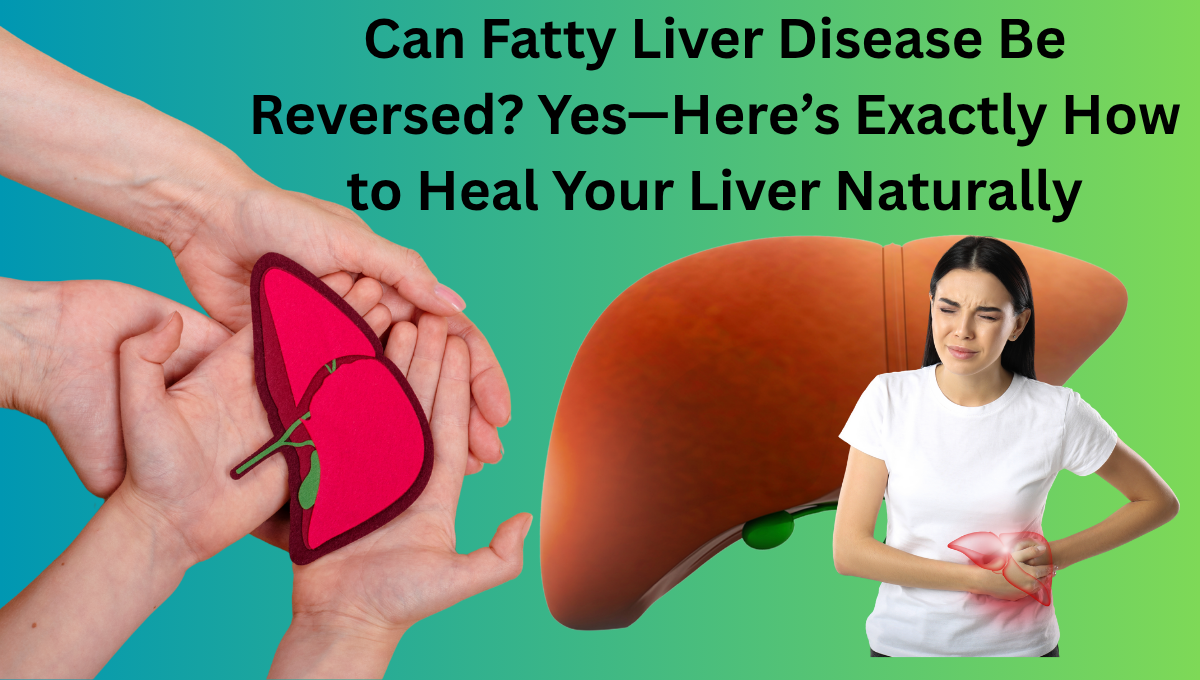Can Fatty Liver Disease Be Reversed? Yes—Here’s Exactly How to Heal Your Liver Naturally
🔍 Introduction:
Optimism for Hepatic Health
If you have been diagnosed with fatty liver disease, you are likely contemplating one significant question:
Is reversal possible?
The concise response: YES—fatty liver disease is often fully reversible, particularly when identified at an early stage. By implementing appropriate lifestyle modifications, fostering supporting habits, and maintaining consistency, you can facilitate liver recovery and mitigate the risk of long-term problems.

In this comprehensive yet accessible overview, we will delineate:
Definition of fatty liver disease
What are the underlying causes?
Reasons for its increasing prevalence
Methods for natural reversal—step by step
This article provides hope, scientifically supported techniques, and practical guidance for individuals recently diagnosed or those supporting a loved one in restoring liver health.
Hamburger What constitutes fatty liver disease?
Fatty liver disease arises when an accumulation of excess fat accumulates within liver cells. Although the liver inherently maintains a minimal quantity of fat, excessive accumulation can lead to inflammation, injury, and ultimately fibrosis.
There are two primary categories:
1. Non-Alcoholic Fatty Liver Disease (NAFLD)—The most prevalent variant.
Not attributable to alcohol
Firmly associated with suboptimal nutrition, obesity, insulin resistance, and sedentary behavior
2. Alcoholic Fatty Liver Disease (AFLD) Induced by excessive alcohol use
Reversible with cessation of drinking and provision of support
Alert Approximately 25% of the global population is currently affected by NAFLD, with many individuals unaware of their condition.
👀 What Makes Fatty Liver a Subtle Hazard?
Fatty liver disease frequently presents without symptoms in its initial stages. Hence, it is referred to as a silent sickness. Individuals may seem and perceive themselves as healthy yet possess considerable hepatic fat accumulation.
If not addressed, fatty liver can advance through four stages:
 Simple steatosis (lipid buildup)
Simple steatosis (lipid buildup)
Non-Alcoholic Steatohepatitis (NASH)—hepatic inflammation and injury
Fibrosis—initial scarring
Cirrhosis—significant fibrosis, risk of hepatic failure
Liver damage is reversible in the initial stages; however, it becomes irreversible once cirrhosis sets in.
Contemplative expression. What are the Causes of Fatty Liver?
Various lifestyle and metabolic variables lead to the buildup of fat in the liver:
✅ Prevalent Factors: Diet rich in sugar, refined carbohydrates, and processed foods
Inactive lifestyle
Obesity or excess weight
Insulin resistance or Type 2 diabetic mellitus
Elevated triglyceride or cholesterol levels
Polycystic ovarian syndrome (PCOS)
Sleep disorders, such as sleep apnea
Specific pharmaceuticals (e.g., corticosteroids, methotrexate)
Genetics and ethnicity contribute significantly—individuals of South Asian, Hispanic, and Middle Eastern heritage may exhibit a higher predisposition.
How is fatty liver diagnosed?
Due to the infrequency of early symptoms, fatty liver is typically identified during regular examinations.
 Diagnostic Instruments: Blood assays (hepatic enzymes such as ALT and AST)
Diagnostic Instruments: Blood assays (hepatic enzymes such as ALT and AST)
Ultrasound or FibroScan
Magnetic Resonance Imaging or Computed Tomography scan
Liver biopsy is indicated solely in severe or ambiguous conditions.
Mild elevations in liver enzymes may not invariably indicate harm; rather, they serve as a prompt for intervention.
Is it possible to reverse fatty liver disease?
Affirmative—particularly during the initial phases (NAFLD and NASH).
The liver is one of the few organs capable of regeneration. Appropriate therapies can diminish or eradicate liver fat and early scarring.
Scientific studies have demonstrated that fatty liver can markedly improve after six months of adopting a healthy lifestyle.
How to Naturally Reverse Fatty Liver: A Comprehensive Step-by-Step Plan
Prepared to rejuvenate your liver? Adhere to this evidence-based action plan:
1. Revise Your Diet
The diet is the primary factor influencing liver fat and serves as the most effective means for its reversal.
✅ Increase consumption of leafy vegetables (spinach, kale)
 Cruciferous vegetables (broccoli, cauliflower, cabbage)
Cruciferous vegetables (broccoli, cauliflower, cabbage)
Beneficial lipids (avocados, almonds, olive oil)
Whole grains (oats, quinoa, brown rice)
Lean proteins include chicken, tofu, lentils, and fish.
Fruits with low sugar content (berries, apples)
Avoid sugary beverages (sodas, energy drinks, sweet teas).
Refined carbohydrates (white bread, pastries, chips)
Processed meats (such as sausages and bacon)
Trans fats (fried foods, margarine)
Excessive sodium and added sugars
A Mediterranean or plant-based diet significantly aids in liver recovery.
2. Engage in Daily Physical Activity
There is no necessity to participate in marathons; consistent movement suffices.
 Optimal Exercises: Vigorous walking (30 minutes per day)
Optimal Exercises: Vigorous walking (30 minutes per day)
Cycling or swimming
Lightweight resistance training
Yoga or dance
Research indicates that exercise alone, irrespective of weight loss, decreases liver fat by 10–20%.
⚖️ 3. Reduce Excess Weight (If Necessary)
Weight reduction is the most efficacious method for diminishing hepatic fat.

A reduction of merely 5–10% of body weight might significantly diminish hepatic inflammation and fat accumulation.
Progress gradually—1 to 2 pounds per week is optimal.
If you weigh 80 kg, a reduction of 4–8 kg can initiate the reversal of fatty liver disease.
Eliminate Sugary Beverages Entirely
Fructose, a significant contributor to hepatic lipid accumulation, is present in:
 Carbonated beverage
Carbonated beverage
Energy beverages
Juice
Sweetened coffee or tea
Pre-packaged snacks
Substitute with water, lemon-infused water, herbal drinks, or flavored water
5. Obtain 7–9 Hours of Quality Sleep. Sleep is crucial for hepatic restoration.
Inadequate sleep results in elevated cortisol levels, increased abdominal adiposity, and exacerbated hepatic inflammation.
Recommendation: Maintain a regular bedtime, minimize screen exposure before sleep, and establish a dark, tranquil sleeping environment.
6. Monitor Sodium and Processed Food Consumption
Diets high in salt lead to fluid retention and hepatic strain.
Reduce:
Preserved soups
Chilled cuisine
Potato chips and fast food
Commercially produced sauces
Prepare additional meals at home—regulate the ingredients utilized.
7. Incorporate Superfoods Beneficial for Liver Health
Enhance your recovery with natural foods that facilitate liver detoxification:
 Turmeric (anti-inflammatory agent)
Turmeric (anti-inflammatory agent)
Green tea (rich in antioxidants)
Garlic (facilitates lipid metabolism)
Beets (abundant in betalains)
Coffee, when consumed in moderation, is associated with reduced liver enzyme levels.
Incorporate turmeric into curries or smoothies and consume green tea post-meals.
8. Regulate Stress
Stress elevates cortisol levels, which leads to abdominal adiposity and insulin resistance.
Attempt:
 Applications for mindfulness or meditation
Applications for mindfulness or meditation
Diary writing
Respiratory exercises
Practice of gratitude
Even just 10 minutes of focused breathing can reduce stress chemicals that are detrimental to liver health.
Collaborate with a healthcare professional.
You need not undertake this independently.
Request a tailored plan based on your blood analysis.
Conduct liver function tests every 3 to 6 months.
Obtain recommendations for a nutritionist or dietitian if necessary.
⏱️ What is the duration required to reverse fatty liver?
Through persistent endeavor:
3–6 months: A reduction in liver fat and normalization of enzyme levels may be observed.
12 months: The majority of individuals experience substantial liver enhancement.
Advanced stages (fibrosis or early cirrhosis) may necessitate prolonged duration or medical intervention.
Progress is gradual yet consistent. Consider it a comprehensive lifestyle overhaul rather than a temporary solution.
Prohibitions for Individuals with Fatty Liver Avoid engaging in unsupervised crash diets or fasting, since they may exacerbate liver stress.
Consume supplements only if advised
Utilize detoxification drinks or cleansing regimens
Consume alcohol (particularly if diagnosed with NASH or AFLD)
🔍 Authentic Narratives: Indeed, It Is Achievable
A multitude of individuals have ameliorated fatty liver with uncomplicated, durable modifications.
Student I received a diagnosis of fatty liver at the age of 28. I eliminated soda, commenced daily jogging, and lost 6 kg. The subsequent examination revealed a better liver within four months. — Rahul, India
Female professional As a working mother, I lacked the time for dietary regimens. I replaced processed food with fruits and practiced yoga. My liver enzymes are currently within the normal range. Nina, United States
Frequently Asked Questions Regarding the Reversal of Fatty Liver
Q: Is it possible to reverse fatty liver without weight loss?
Indeed, physical activity and dietary modifications can diminish hepatic fat, irrespective of little weight reduction.
Q: Must I adhere to a rigid diet indefinitely?
Not obligatory. Upon the enhancement of your liver function, you may sustain health with a balanced, adaptable diet.
Is pharmacological intervention necessary?
Typically not. In extreme instances (NASH or fibrosis), physicians may prescribe pharmacological treatments or suggest clinical trials.
Q: Is fatty liver a life-threatening condition?
If neglected, it can escalate into a significant issue; nevertheless, it is very controllable and reversible when detected early.
💬 Concluding Remarks: Your Liver Has the Capacity to Regenerate
Fatty liver disease need not be a permanent condition.
It is your body’s indication to decelerate, improve your diet, increase physical activity, and practice self-compassion. By implementing minor, persistent modifications, you can enhance your liver health, mitigate the risk of problems, and improve your overall well-being.

